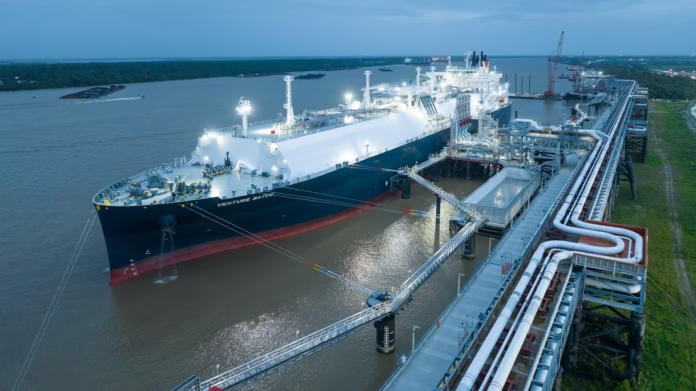Bahrain and Russia are progressing toward a landmark three-year LNG agreement, which would introduce Russian gas into the kingdom for the first time.
The Bahrain-Russia LNG deal includes an annual supply of 1.5 million tons, equivalent to roughly 20 cargoes per year, according to an informed source.
Earlier this week, Bahrain’s Energy Minister Mohamed bin Mubarak bin Dainah met with Russian Deputy Prime Minister Alexander Novak to discuss the deal.
The talks mark a strategic shift in Bahrain’s sourcing of liquefied natural gas as it seeks new suppliers to meet rising demand.
A follow-up meeting is scheduled for Thursday and will involve Russian energy firms Novatek and Lukoil, the source added.
These discussions aim to finalize technical requirements and align delivery timelines with Bahrain’s infrastructure capabilities.
The Bahrain-Russia LNG deal emerges as Bahrain continues engaging with multiple international suppliers to address a domestic gas shortfall.
Increased energy demand, especially during summer, has made LNG imports a national priority.
Bahrain resumed LNG imports in April 2025, receiving its first cargo since 2019 at the Bahrain LNG terminal.
Authorities expect additional cargoes this year to support electricity production and grid stability.
However, the deal may carry geopolitical sensitivities, particularly concerning Washington’s presence in the Gulf.
The U.S. Navy’s Fifth Fleet, headquartered in Manama, relies on Bahrain’s gas-based power infrastructure for critical operations.
The Bahrain-Russia LNG deal could spark regional and diplomatic discussions given ongoing sanctions on Russia’s energy sector.
Nonetheless, Bahraini officials appear focused on energy security and supply diversification.
Regional analysts say Bahrain is navigating complex choices to secure cost-effective and reliable energy sources.
As talks continue, the LNG agreement may set a precedent for Gulf states diversifying beyond traditional suppliers.
With summer demand already rising, Bahrain’s LNG import strategy has become a central pillar of its national energy plan.


